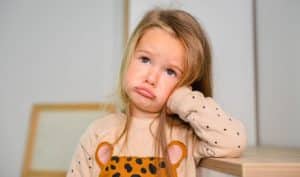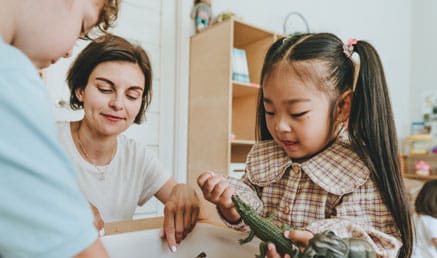
“It’s our polite nudge in the ribs to help you and your team stay organised and on task.”
This week’s subject is: Self-regulation
Element 5.2.2: Each child is supported to regulate their own behaviour, respond appropriately to the behaviour of others and communicate effectively to resolve conflicts.
Has your service recently reflected on how your team’s daily practices promote self-regulation in children and young people, empowering them to manage conflicts, emotions and behaviour?
Self-regulation begins in infancy and develops rapidly during the preschool years. As children grow and develop, they naturally become more resilient yet continue to learn new ways to regulate their behaviour. This includes emotional regulation (calming down after frustration), behavioural regulation (following rules without constant reminders), and cognitive regulation (focusing attention during activities and structured experiences). In ECEC settings, where children engage in a range of social interactions, group activities, and new routines daily, developing these skills prevents conflicts and fosters autonomy. Without self-regulation competence, children may struggle with impulsivity, leading to challenges in school readiness and lifelong learning.
Educators use a range of intentional teaching strategies to foster children’s self-regulation, in age, and developmentally appropriate ways. By creating supportive environments, guiding children’s behaviour and facilitating interactions, Educator’s support children and young people to manage their behaviour and negotiate their rights in relation to the rights of others.
When reviewing your quality practices with your team, reflect on what’s currently being implemented and consider how educators can refine their practices, both individually and collectively to foster positive, warm and secure environments where children are consistently supported to manage their emotions and respond to others with compassion and empathy:
-
- Educators recognise that children’s capacities for regulation develops gradually and often varies from one day to the next, depending on their mood, health factors, family circumstances and situations they find challenging.
- Educators recognise behaviour as a reflection of the child’s emotional state and relational needs, maintaining a positive view of the child, separate from challenging behaviours, and offering increased compassion, warmth and support during emotionally intense moments.
- Educators model respect and regulation with adults and children by demonstrating calm responses to challenges, such as verbalising feelings during a group activity: “I’m feeling frustrated because the blocks keep falling, but I’ll take a deep breath and try again.”
- Educators strategically design supportive and calming environments. Set up spaces with quiet zones for self-soothing and visual aids like emotion charts to build vocabulary for feelings/emotions. Routines with flexible yet predictable transitions help to reduce anxiety, allowing children and young people to practice self-control.
- Learning environments are designed to be inclusive, represent and reflect individual children, fostering a sense of belonging, strong sense of identity and security.
- Educators consistently initiate discussions about emotions and support children and young people to recognise and identify their emotions, just and unjust behaviour and prejudices.
- Educators collaboratively plan and implement support strategies for individual children and young people’s behaviour and share plans and progress with the child’s family.
- Educators work with families, the school (OSHC) and other professionals to appropriately support each child’s emotional and social development and ensure consistency.
- Educators draw on their knowledge of individual children’s circumstances, development, needs and preferences to respond and support children to manage their emotions and respond appropriately in social situations, with consideration for the feelings and needs of others.
- Educators consistently encourage and reinforce positive behaviours and self-regulation (where appropriate) in children, both individually and collectively.
- Educators support children and young people to negotiate and share ownership of responsible and respectful behaviours and setting reasonable boundaries as a group.
- Educators integrate play based learning, using games and role-play to simulate real life scenarios, reinforcing positive behavioural responses and social interactions.
- Educators ensure consistency when responding to children and young people’s behaviour to ensure that expectations are clear and transparent across the Service, whilst ensuring reasonable consideration for individual children’s needs.
- When children and young people display behaviour that negatively impacts others, educators support children to develop an understanding of the impact of that behaviour from the other child’s perspective. Rather than encouraging a “hollow gesture”, by asking the child to “say sorry”, Educators encourage children to consider how their behaviour has impacted their peer’s feelings, supporting children to develop genuine care and empathy for their peers.
It’s no secret that educators play a crucial role in supporting and shaping the way children and young people learn to manage their emotions. When educators prioritise self-regulation, they help children build internal tools to cope, reducing reliance on external measures.
By implementing intentional, practical strategies, educators support children and young people to develop their emotional literacy, growing into resilient, caring, empathetic humans. Research highlights that children with well-developed self-regulation skills experience improved academic achievement, stronger relationships, and reduced behavioural challenges later in life. In ECEC settings, this translates to fewer disruptions, more harmonious play, enhanced overall well-being and quality outcomes for children, staff and families.
Resources:
Supporting children to regulate their behaviour
ECRH-Emotional literacy and self-regulation
Fifteen elements of resilience
Self-regulation: A foundation for wellbeing and involved learning
Resources for families:
Raising Children Network- Self-regulation
Developing your child’s emotional literacy
Positive approaches to guiding behaviour- Parent guide
Within System7 go to Quality Area 5/Module 6 to submit self-assessment notes and if required, open a QIP issue if you identify any areas of improvement.
The Childcare Centre Desktop has a range of resources to assist services with behaviour guidance. These include Behaviour Guidance Policy, Behaviour Guidance Procedure, Behaviour Guidance Audit, Behaviour Guidance Plan, Behaviour Guidance Biting Guide, Behaviour Guidance- Promoting and Supporting Positive Behaviour and much more.
Resources, NQS Element, Regulation and System7 links:
Childcare Centre Desktop – Childcare Centre Desktop
National Quality Standard – QA5 / Element: 5.2.2
National Regulations – Part 4.5 Relationships with children, 168
System7 Module – QA 5/ Module 6
If you have any questions, send us a note via the Contact page here!




